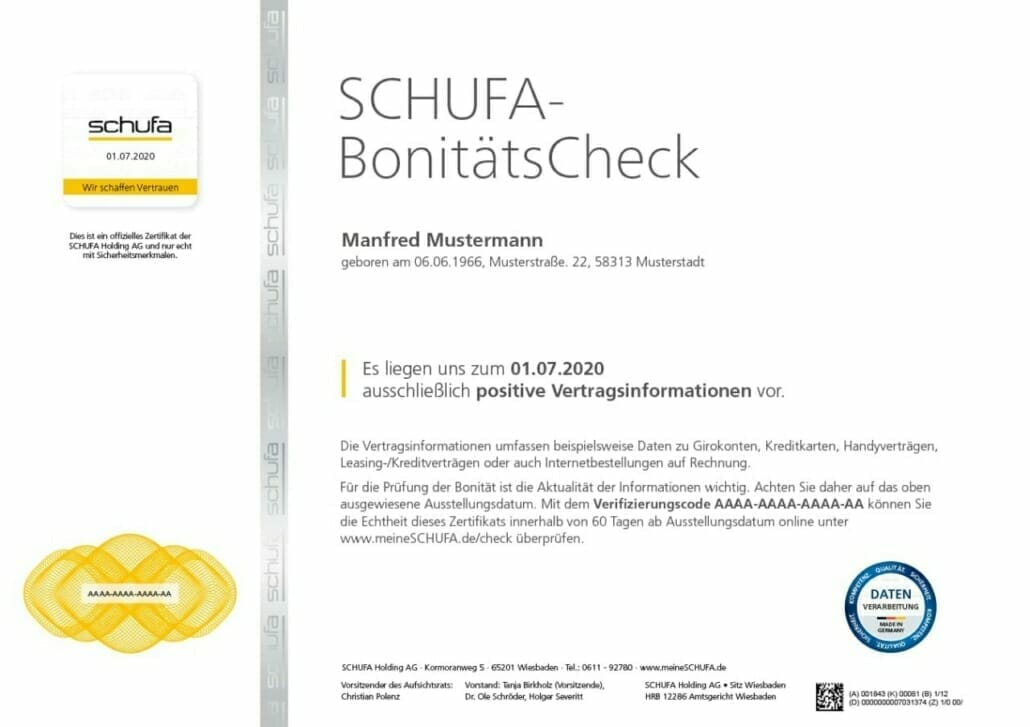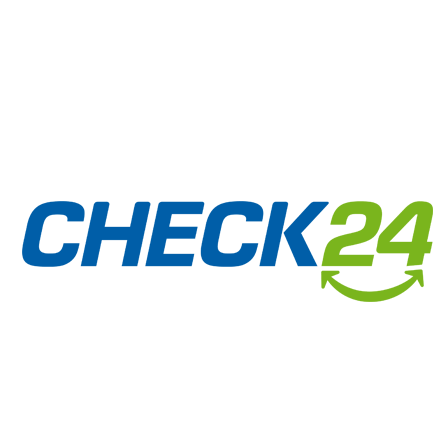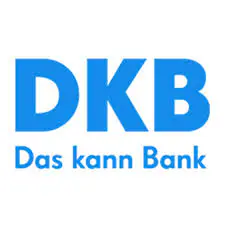How to get a loan in Germany as an Expat

Are you considering purchasing a new car, furnishing your apartment, refinancing existing loans, or fulfilling a special wish in Germany? If so, you may want to explore the option of obtaining a loan. In this article, we will provide you with essential information about loans in Germany and introduce you to a smart way of comparing credit conditions to secure the best deal. Additionally, we will guide you through the process of obtaining your SCHUFA self-report, explaining where and how to apply. Enjoy reading!
Loans in germany for foreigners
Yes, foreigners can apply for loans in Germany as long as they meet certain requirements.
To be eligible for a loan, you must be of legal age, reside in Germany, and have a German bank account. Additionally, banks impose their own conditions for granting loans. For instance, most banks require loan applicants to have a certain income level and stable employment. Your employment contract should not be limited in duration, and you should have completed your probationary period. If your employment is temporary, you may typically apply for a loan if the loan term ends before your contract expires. A positive credit report from Schufa is also usually required for loan approval.
How do German banks rate my creditworthiness?
Your creditworthiness plays a crucial role in determining whether a bank will approve your loan application. Typically, banks evaluate your income, and having a stable employment with a regular salary is often a prerequisite. Self-employed individuals and freelancers demonstrate their financial stability through balance sheets and income statements. Additionally, creditworthiness is assessed using the Schufa score.
Certain occupational groups, such as civil servants, students, or the self-employed, may have access to special loan opportunities tailored to their specific needs.

What is the Schufa score?
The Schufa score is a credit rating system used by SCHUFA, a credit reporting agency in Germany. It assesses an individual’s creditworthiness based on their financial history and payment behavior. The Schufa score is a numerical representation that indicates the likelihood of a person repaying their debts and meeting their financial obligations.
By regularly obtaining a self-report from SCHUFA, you can monitor your Schufa score and gain insights into your creditworthiness. While the free self-report provides a general indication of your creditworthiness, a detailed report offers more comprehensive information.
It’s important to note that the Schufa score is just one factor considered by banks when evaluating loan applications. Even if you have a good Schufa score, the final decision to grant a loan rests with the bank. Other factors such as income, employment stability, and overall financial situation also play a significant role in the loan approval process.
You can easily book a detailed report from the SCHUFA online in only a few clicks for 29.95 €!
How much debt can I afford?
Determining the maximum amount of debt you can afford is crucial to maintain financial stability. It depends on factors such as your monthly repayment capacity and interest rates. To assess this, you can perform a budget calculation by comparing your regular income (net income) with your everyday expenses.
Consider expenses such as rent, insurance, utility bills (electricity and heating), food, clothing, phone bills, and hobbies. It’s also important to allocate funds for emergencies, future purchases (e.g., a new car or computer), and leisure activities like vacations. After deducting these expenses, you’ll have a clearer idea of how much you can allocate towards loan installment payments. It’s advisable to maintain a financial buffer for unforeseen costs.
Using a loan calculator from platforms like Check24 or DKB, you can determine the monthly interest rate based on the loan amount, repayment period, and interest rate. This information will help you assess the loan amount and the feasible repayment terms that align with your budget and financial goals. Remember, it’s essential to borrow within your means to avoid financial strain and ensure long-term financial well-being.
What documents do I need to apply for a loan?
In addition to the signed contract, banks often require additional documents from you:
- Bank statements for the last two to three months
- A payslip or wage statement
- A current pension statement for pensioners
- A salary statement for civil servants
- At least one income tax statement for self-employed persons and, as a rule,
- An income surplus calculation and business assessment.
Earmarked loans may require additional documentation, such as the registration certificate part II for a car loan or a signed security transfer. A power of attorney is required for a debt restructuring.

When can I expect the money in my account?
The timing of receiving funds in your account depends on the type of loan you choose. Generally, the money is disbursed within a few days and is ready for use. If you opt for an instant or lightning loan, you can expect the funds to be credited to your account on the next business day. In some cases, for shorter loan terms, an instant loan can even be deposited into your account on the same day.
5 Tips for Getting A Good Loan In Germany
#1 The APR – annual percentage rate
When comparing loans, it is important to focus on the APR. This rate includes all the costs associated with the loan, excluding the loan interest. It provides a comprehensive view of the borrowing costs customers will incur. The only exception to this is the voluntary residual debt insurance.
Some loans have a fixed interest rate, while others have an interest rate that depends on your creditworthiness. If a loan comparison shows an interest rate range, it indicates a creditworthiness-dependent interest rate. With this type of loan, the effective interest rate can vary within the minimum and maximum rates indicated. The bank determines the specific interest rate based on an initial credit check. To get a sense of the loan terms before inquiring about personal rates, you can use the two-thirds rate, which represents the highest interest rate paid by at least two-thirds of customers for the loan.
#2 Additional unscheduled repayments
When comparing loans, it’s important to consider more than just the interest rates. Repayment flexibility is also a valuable aspect to assess. The availability of free unscheduled repayments can be a great way to save on loan interest. By making extra payments, you reduce the outstanding loan amount and consequently pay less interest. Keep in mind that free unscheduled repayments are typically subject to certain limitations, such as a maximum number of repayments within a specific period. However, some banks offer unrestricted free unscheduled repayments, allowing you to repay any amount of the loan at any time.
If a loan does not provide the option for free unscheduled repayments, banks may impose early repayment penalties. These penalties are incurred when you repay the loan earlier than the agreed-upon schedule. Additionally, installment repayments offer greater flexibility in repayment. The ability to pause loan installments can be particularly useful in the event of unexpected expenses. Some banks allow you to do this without charging a fee, while others may require a fee for pausing installments.

#3 Choose the duration and monthly rate
Before obtaining a loan, it’s crucial to assess your budget carefully. Take into account your fixed monthly expenses, regular variable costs, and any annual expenses, such as insurance premiums or taxes. Additionally, set aside some funds for unforeseen expenses. The remaining amount in your budget can be allocated towards loan repayment.
You likely have a specific loan amount in mind. On online comparison platforms, you can input the desired repayment duration in months. Keep in mind that the faster you repay the loan, the lower the total interest paid. However, opting for shorter repayment periods will result in higher monthly payments. It’s important to find a balance that aligns with your budget and financial goals.
#4 – Applying for a joint loan
Applying for a loan doesn’t always have to be a solo endeavor. Including another borrower in your loan application can have advantages such as obtaining a better interest rate and increasing the likelihood of loan approval by the bank.
When you apply for a joint loan, the combined creditworthiness of both borrowers can lead to a more favorable interest rate. Having a higher total annual income provides greater security for the bank. It’s important to note that these benefits typically apply when the second applicant also has a regular income.
It’s essential to understand that taking out a joint loan means that both borrowers share equal responsibility for ensuring timely repayment of the monthly installments.
#5 – Would you like a loan insurance?
Some loans offer optional insurance coverage known as residual debt insurance, payment protection insurance (PPI), or residual credit insurance (RCI). These insurances provide coverage for loan installments in case of unemployment, disability, or unexpected death. However, it’s important to note that they come with additional costs.
Before deciding on loan insurance, it’s crucial to carefully consider whether it aligns with your needs. It’s worth exploring alternative options such as existing endowment or pension insurance policies that may serve a similar purpose. If you opt for residual debt insurance, it’s essential to thoroughly review the coverage details. These insurances can often be more complex than they initially appear, so reading the fine print is essential.
Why is it beneficial to specify an intended use with your credit loan?
Good to know:
It’s important to know that banks often offer more favorable interest rates for loans when they consider it a secure investment. For example, loans intended for purchasing houses or cars typically receive the best interest rates.
By specifying the intended use of the loan, you can increase your chances of getting the best deal. However, it’s important to note that the funds must be used solely for that purpose. To explore how your bank can support your investment plans, it’s recommended to have a conversation with them.
Debt restructuring in Germany
Restructuring existing loans can be advantageous for several reasons. It can help reduce credit costs and adjust installments to accommodate changes in life circumstances. For individuals managing multiple loans, consolidating them into a single loan can provide a clearer overview of their financial situation. During the debt refinancing process, it is typically necessary to sign a power of attorney, granting the new bank the authority to pay off the old loan.

Car loan in Germany
When purchasing a car, motor home, or motorcycle, opting for car financing can lead to more favorable interest rates. In many cases, the vehicle serves as additional security for the bank until the loan is fully repaid.
By choosing auto loans instead of dealer financing, consumers often have the opportunity to negotiate better prices and discounts on cash payments for their vehicles. This can result in cost savings and more affordable options compared to dealer financing arrangements.
Modernization loans for real estate in Germany
Homeowners often receive favorable treatment from banks when it comes to obtaining loans for property modernization or renovation. If you’re looking to borrow money for enhancing the value of your real estate, such as installing solar panels or improving insulation, you’re likely to find favorable loan options. These investments are considered good collateral because the bank can rely on the valuable property in case of non-payment. In addition, you may be eligible for government subsidies from the KfW bank for energy-saving measures in your home. It’s important to note that modernization loans are typically specific to property owners.
How to find the best loan rates in Germany

#1 CHECK24 – Loan comparison at top terms
- CHECK24 gives you an overview of the entire lender market. With comparison, you can be sure to find a suitable loan under the best conditions.
- At CHECK24, you can choose the loan amount depending on the desired purchase.
- With the credit calculator of Check24, you can determine the monthly interest rate to be paid based on the term, loan amount, and interest.
- The comparison platform allows you to conclude a loan from the comfort of your home. It can do everything online and quickly with a digital identification process.
- At CHECK24, your Schufa credit score is secondary. The loans are Schufa-neutral, and at the same time, the request is non-binding.
- On CHECK24, you can submit a non-binding credit request to several institutions simultaneously, increasing your financing request’s likelihood of receiving a loan offer.
- After making a non-binding loan request, you can get free advice to find the perfect offer for you.
- To send the required standard documents quickly and easily to your bank, you can connect once on CHECK24 to your bank account to retrieve your bank statement online. All you need is your usual online banking data; the connections are encrypted and TÜV-approved.
Tip: If you have a connected bank account, you will receive lower interest rates on average! The account statement is also available subsequently in digital form.
#2 DKB – Top loan conditions
If you already know what loan you want, take advantage of the excellent loan conditions at the DK Bank!

Annual and debit interest rates at DKB
Deutsche Kreditbank (DKB) provides flexible installment loans through its DKB Privatkredit, catering to various financing needs regardless of the purpose. The loans range from 2,500 to 65,000 euros, with repayment terms spanning from 12 to 120 months.
DKB accepts most common financing purposes, such as business startup or debt consolidation, excluding real estate financing and refinancing. However, DKB offers separate options for real estate financing under specific conditions.
The APR and fixed borrowing rates vary based on the loan term, and active online banking customers enjoy more favorable rates. It’s important to note that this arrangement does not apply to freelancers and self-employed individuals.
The APR typically ranges between 3.09% and 3.79%, while the fixed borrowing rate falls between 3.05% and 3.73%, depending on individual circumstances.
Quick loan in Germany from DKB
DKB offers borrowers the convenience of obtaining flexible installment loans through their Instant Credit Loan option. With this option, borrowers can apply for and receive a loan decision and disbursement instantly, without the need to submit any documents. The entire process can be completed online, including authentication through VideoIdent and contract confirmation with a digital signature.
The conditions for the Instant Credit Loan are similar to those of the Personal Loan, with the exception that the available net loan amount ranges from 2,500 to 15,000 euros. Borrowers still have the option to make free unscheduled repayments, providing flexibility in loan repayment.

How does real estate financing work at DKB?
DKB offers comprehensive real estate financing solutions for various purposes such as property purchases, land acquisitions, new constructions, renovations, refinancing, and raising funds for real estate projects. The minimum loan amount for real estate financing at DKB is 20,000 euros.
Customers have the flexibility to choose fixed interest rates ranging from 5 to 20 years, providing stability and predictability in their loan terms. The minimum repayment amount is set at 2% of the loan.
The possibility of unscheduled repayments depends on the specific loan agreement, which can include options such as annuity loans, vario loans, or KfW loans. These options cater to different needs and offer varying degrees of repayment flexibility.
Who can get a credit from DKB?
- Lenders who want to apply for a DKB loan must:
- Be at least 18 years old.
- act in their own financial interest
- have a residence in Germany
- Have a permanent job (with a few exceptions, such as self-employed or freelance pharmacists, but doctors and DKB existing customers are excluded).
Conclusion: applying for a credit in Germany
Whether it makes sense to take out a loan or not is always a personal choice. Take the time to compare offers and weigh your options. If you then find a loan is what you want and have the means for repayment, choose a bank.






